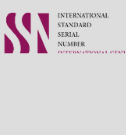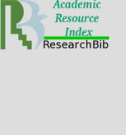The Revolutionary Intersection of AI and Healthcare: Embracing ChatGPT with Caution
Keywords:
Artificial Intelligence, Healthcare, , Medical Informatics, Patient Safety, Computer Communication NetworksAbstract
Dear editor,
Artificial Intelligence (AI) continues to redefine the contours of innovation, and its latest marvel, ChatGPT, stands as a transformative tool with profound implications in healthcare education, research, and practice. Developed by OpenAI, ChatGPT exemplifies the potential of Large Language Models (LLMs) to generate sophisticated, human-like responses across diverse contexts. While promising, its integration into healthcare warrants a nuanced exploration of its benefits and concerns [1].
ChatGPT is contributing to healthcare by leveraging its natural language processing and machine learning. One key area is clinical documentation, where it assists by automating the generation of patient notes, and medical reports, thereby reducing administrative burdens and allowing more time for patient care. It is acting as a virtual assistant to provide accurate and easily understandable health information. Patients can use it to ask questions about symptoms, medications, or treatment plans, ensuring they stay informed about their healthcare. Additionally, ChatGPT is also supporting diagnostics by analyzing large volumes of patient experimental data, including symptoms and medical histories, these applications highlight how ChatGPT may help to enhance patient care and support decision-making in healthcare.
Bridging Gaps in Healthcare Education
Healthcare education demands rigorous learning of vast information. ChatGPT emerges as a compelling ally, providing personalized, interactive learning experiences. Its capability to generate realistic clinical vignettes and simulate dynamic medical scenarios offers students practical insights beyond traditional methods. This approach aligns with modern pedagogical priorities, such as critical thinking and problem-based learning. Furthermore, ChatGPT can democratize learning by bridging linguistic barriers, enabling non-native English-speaking students to access high-quality content inclusively. Its potential as a tutor, offering instant feedback and customizable lesson plans, can complement conventional teaching methods and enhance student engagement. However, this potential must be tempered with vigilance. Over-reliance on AI risks undermining the development of foundational clinical skills and critical thinking. Moreover, ChatGPT's pre-2021 knowledge limitation could lead to outdated or incomplete guidance, stressing the importance of careful oversight by educators [2].
Enhancing Research Efficiency
In research, ChatGPT demonstrates unparalleled efficiency. From summarizing complex datasets to generating concise literature reviews, it empowers researchers to focus on innovative experimental designs and hypothesis formulation. Its assistance in code generation, data analysis, and the identification of novel drug targets could accelerate breakthroughs in personalized medicine and drug discovery [3].
Beyond efficiency, ChatGPT fosters inclusivity in research by overcoming language barriers. This democratization of academic communication can level the playing field for researchers from diverse linguistic backgrounds, promoting global collaboration. Yet, concerns about accuracy persist. Instances of "hallucination," where the AI generates plausible but incorrect information can jeopardize the integrity of research. Furthermore, ethical concerns about plagiarism, inadequate citation, and lack of transparency underscore the need for stringent guidelines governing AI-assisted research [4].
Transforming Clinical Practice
ChatGPT's role in clinical settings is equally transformative. By streamlining workflows, it can alleviate administrative burdens, enabling healthcare professionals to prioritize patient care. Tasks such as generating discharge summaries, simplifying radiology reports, and facilitating patient communication exemplify its practical utility.
Additionally, ChatGPT's potential to improve health literacy by providing accessible, empathetic explanations to patients is noteworthy. Its ability to tailor recommendations based on individual traits aligns with the vision of personalized medicine, offering patients holistic care solutions [5]. However, risks remain. Ethical dilemmas surrounding data privacy, cyber security, and the potential for biased recommendations are significant challenges. The "black box" nature of LLMs—where the logic behind decisions remains opaque—further complicates accountability, especially in life-critical scenarios.
Ethical and Legal Implications
Robust ethical frameworks must guide the embrace of ChatGPT in healthcare. Transparency in its use, coupled with strict adherence to data privacy regulations, is imperative. Moreover, its role in research and practice should not replace human expertise but rather augment it. The motto "ChatGPT in the Loop: Humans in Charge" encapsulates this philosophy.
Legal considerations also warrant attention. From authorship debates in academic publishing to liability issues in clinical errors, clear policies are essential. Current guidelines, such as those from the International Committee of Medical Journal Editors (ICMJE) and the Committee on Publication Ethics (COPE), disallow listing AI as an author, reinforcing the need for human accountability [6].
A Balanced Future
ChatGPT represents an inflection point in the evolution of healthcare technology. Its potential to enhance efficiency, accessibility, and equity in healthcare is undeniable. However, its integration must be approached with caution to mitigate risks of misinformation, bias, and ethical transgressions.
Stakeholders across academia, industry, and policy-making must collaborate to establish guidelines that ensure responsible usage. Proactive measures, such as training healthcare professionals in AI and fostering interdisciplinary research, can pave the way for a balanced future where AI complements human expertise.
As we stand at this crossroads, the words of renowned physicist Stephen Hawking resonate: "Success in creating AI could be the biggest event in the history of our civilization". The onus is on us to harness the power of ChatGPT responsibly, ensuring that its transformative potential serves humanity's best interests.
Competing interests
The authors declare no competing interests.
Downloads
References
. Sallam M. ChatGPT utility in healthcare education, re-search, and practice: systematic review on the promising perspectives and valid concerns. Healthcare (Basel). 2023;11(6):887. doi: 10.3390/healthcare11060887.
. Johnson KB, Wei WQ, Weeraratne D, Frisse ME, Misulis K, Rhee K, et al. Precision medicine, AI, and the future of personalized health care. Clin Transl Sci. 2021;14(1):86-93. doi: 10.1111/cts.12884.
. Nisar S, Aslam MS. Is ChatGPT a good tool for T&CM students in studying pharmacology? In: Aslam MS, Nisar S, editors. Artificial intelligence applications using ChatGPT in education: Case studies and practices. IGI Global; 2023. doi: 10.4018/978-1-6684-9300-7.
. Cascella M, Montomoli J, Bellini V, Bignami E. Evaluat-ing the feasibility of ChatGPT in healthcare: An analysis of multiple clinical and research scenarios. J Med Syst. 2023;47(1):33. doi: 10.1007/s10916-023-01925-4.
. Khan RA, Jawaid M, Khan AR, Sajjad M. ChatGPT - Reshaping medical education and clinical management. Pak J Med Sci. 2023;39(2):605-7. doi: 10.12669/pjms.39.2.7653.
. Liebrenz M, Schleifer R, Buadze A, Bhugra D, Smith A. Generating scholarly content with ChatGPT: ethical chal-lenges for medical publishing. Lancet Digit Health. 2023;5(3):e105-6. doi: 10.1016/S2589-7500(23)00019-5.
Downloads
Published
Issue
Section
License
Copyright (c) 2025 Open Access Journal

This work is licensed under a Creative Commons Attribution-NonCommercial 4.0 International License.



